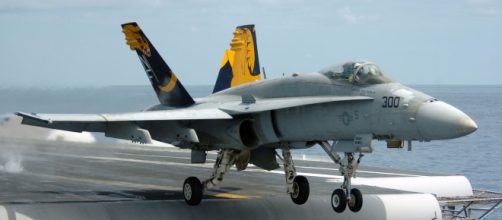North Korean state media has reported that Kim Jong-un has decided not to, after all, launch missiles against Guam, thus averting war with the United States. Of course, the dictator could change his mind at any time, as he has indicated, but for now, the world is breathing a sigh of relief. Most are ascribing the decision to tough warnings emanating from the trump administration as well as promises of economic sanctions from China. Nevertheless, Kim and a nuclear North Korea remain a problem that needs fixing.
‘Fire and fury’ avoided for the time being
When President Trump promised to visit “Fire And Fury” on North Korea if it persisted in its threats, his critics pounced, suggesting that he was being reckless and might even provoke Pyongyang into launching an attack. However, the Trump administration doubled down on the warnings. Trump noted that the American military was “locked and loaded” and ready for action should it be necessary. Secretary of Defense James Mattis added that it would be “game on” the moment missiles were launched against the United States or her allies.
In the meantime, China informed its client state that it would be on its own if it launched the first strike. Beijing also promised that it would adhere to economic sanctions as ordered by the UN Security Council and would cut off imports of a variety of goods from North Korea.
It was in this context that Kim decided to back down, at least for now.
North Korea remains a problem
Of course, North Korea retains a nuclear arsenal and a missile development program. Kim, who is, if anything, unpredictable and irrational, could change his mind at any time and decide to have a go at the United States and her allies, South Korea and Japan after all. However, the North Korean dictator has proven that he will respond to pressure when it is applied.
The fact that North Korea was persuaded to stand down from attacking Guam suggests that it can be influenced to further actions if the pressure is continued to be applied. That means a military buildup, increasing economic sanctions, and continued diplomatic isolation.
Above all, missile defenses have to be augmented to make sure that Kim’s nuclear arsenal will lose at least part of its capability to intimidate.
The development does show that Team Trump is more adroit at crisis management than was the president’s predecessor, who allowed things to fester and grow in what has become an increasingly discredited strategy of “strategic patience.” That approach has been replaced with a more traditional, but far more effective strategy that actively engages the threat and seeks every means to reduce and eventually eliminate it.


